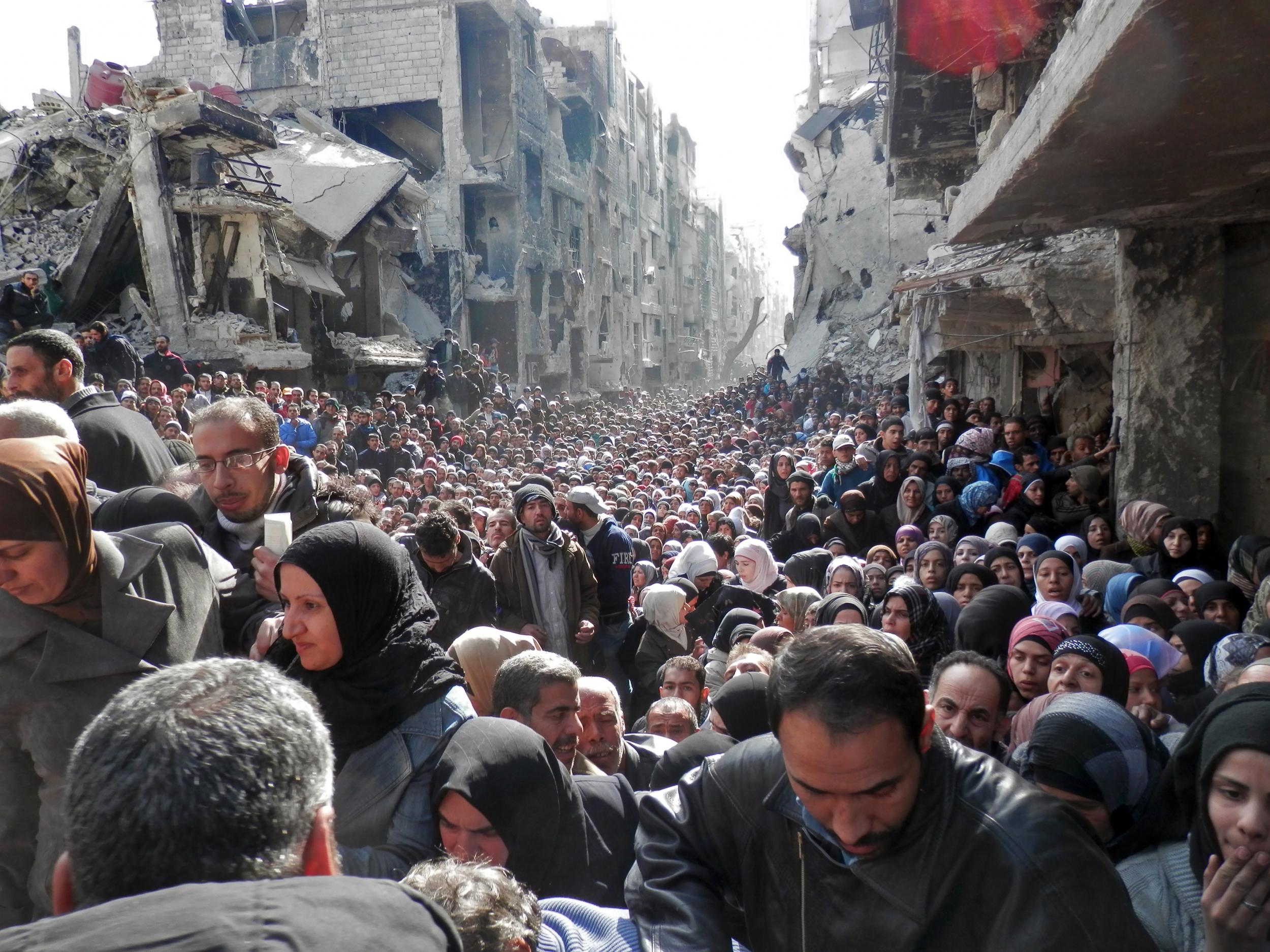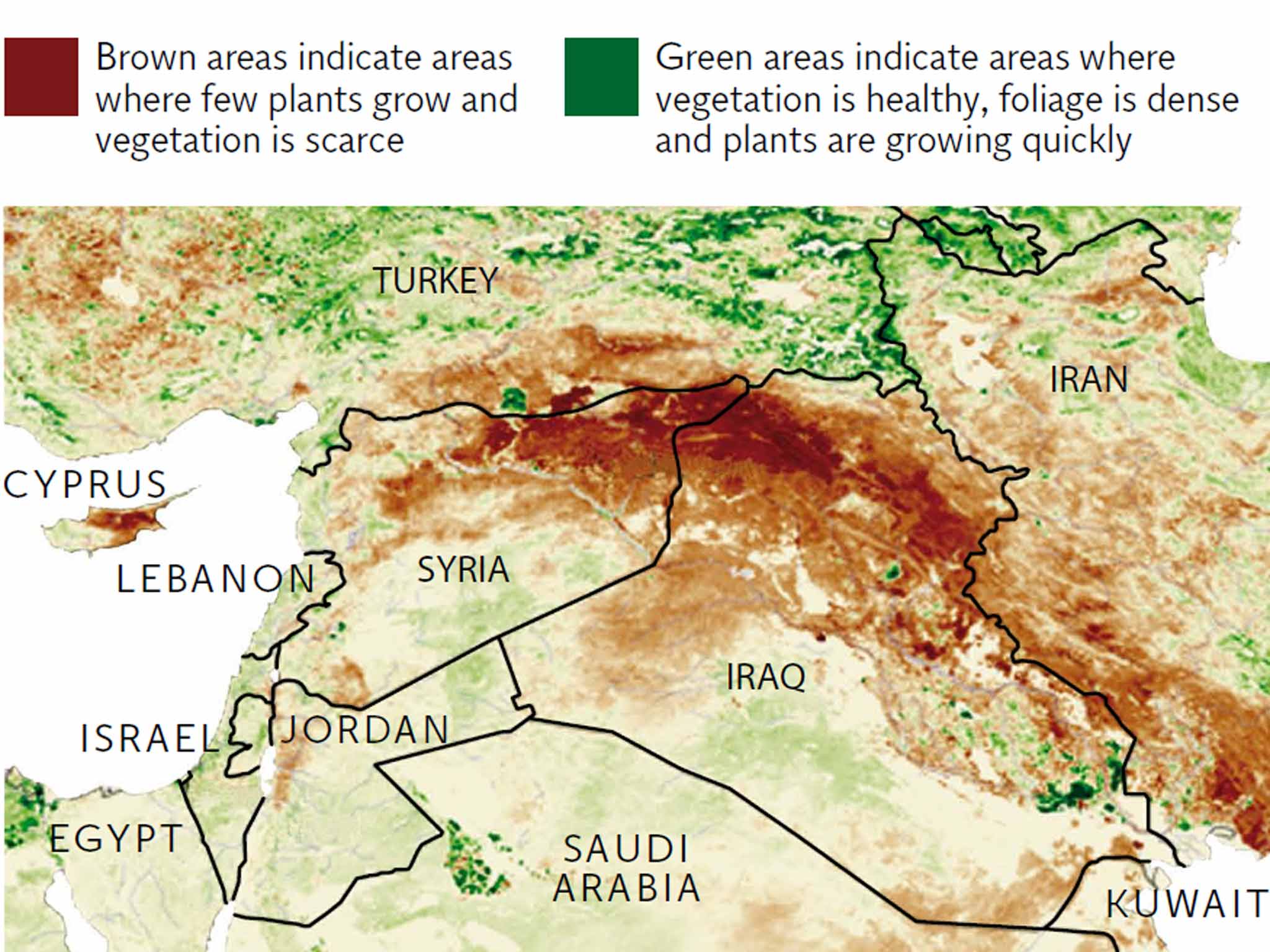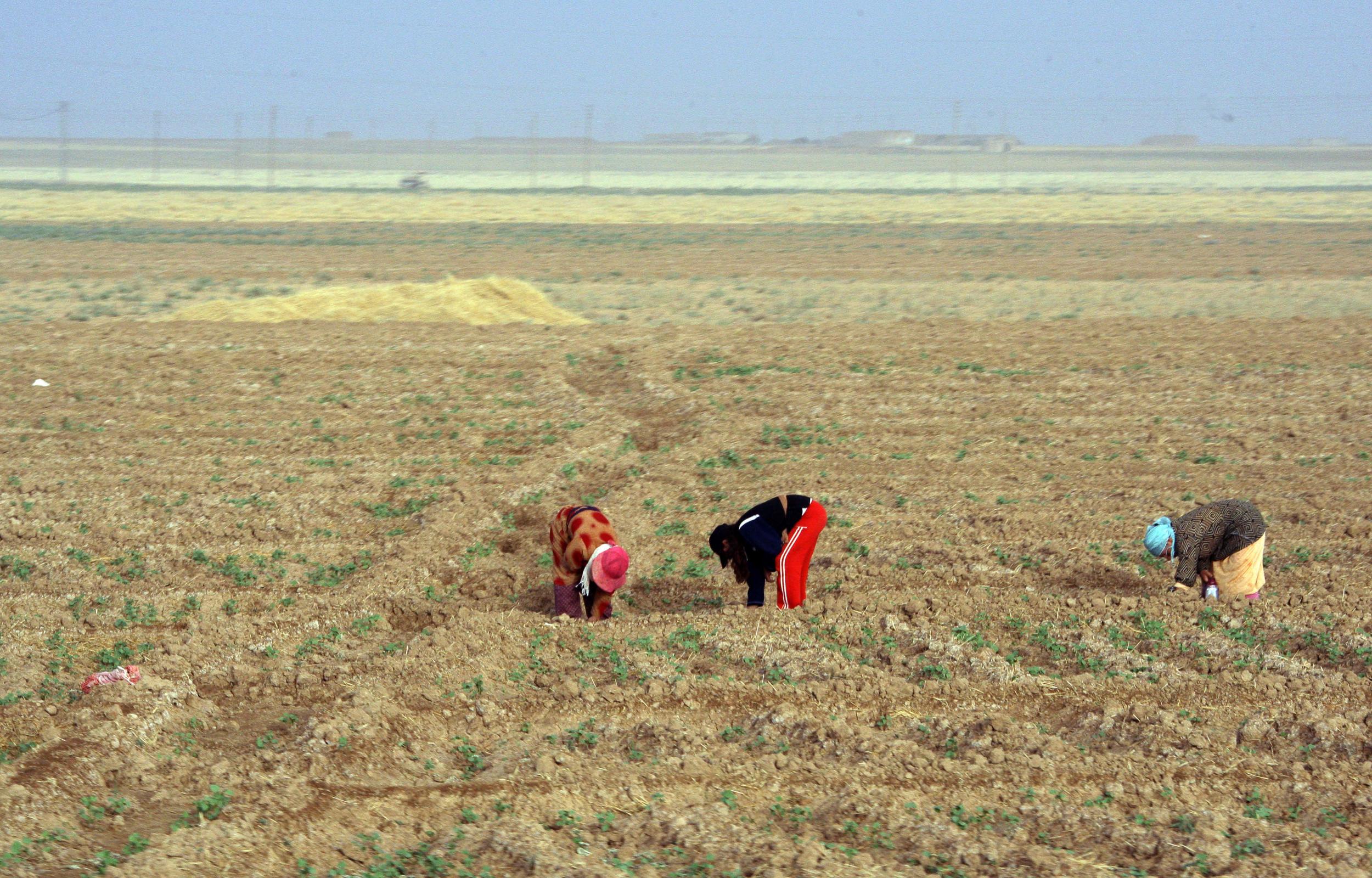Is Prince Charles right about climate change causing the conflict in Syria?
The Syrian drought of 2006 was one of many factors that sparked unrest in the nation

Your support helps us to tell the story
From reproductive rights to climate change to Big Tech, The Independent is on the ground when the story is developing. Whether it's investigating the financials of Elon Musk's pro-Trump PAC or producing our latest documentary, 'The A Word', which shines a light on the American women fighting for reproductive rights, we know how important it is to parse out the facts from the messaging.
At such a critical moment in US history, we need reporters on the ground. Your donation allows us to keep sending journalists to speak to both sides of the story.
The Independent is trusted by Americans across the entire political spectrum. And unlike many other quality news outlets, we choose not to lock Americans out of our reporting and analysis with paywalls. We believe quality journalism should be available to everyone, paid for by those who can afford it.
Your support makes all the difference.Prince Charles has made headlines and faced criticism for claiming that climate change is one of the reasons for the Syrian conflict and ensuing refugee crisis.
Speaking to Sky News, the Prince said: "We're seeing a classic case of not dealing with the problem because, it sounds awful to say, but some of us were saying 20-something years ago that if we didn't tackle these issues you would see ever greater conflict over scarce resources and ever greater difficulties over drought, and the accumulating effect of climate change, which means that people have to move."
"And there's very good evidence indeed that one of the major reasons for this horror in Syria, funnily enough, was a drought that lasted for about five or six years, which meant that huge numbers of people in the end had to leave the land."
Singer turned political activist Charlotte Church made a similar point during an episode of Question Time in October, telling the audience: “Lots of people don’t know about this, but there is evidence to suggest that climate change was a big factor in how the Syrian conflict came about."
She added: "I think we also need to look at what we are doing to the planet and how that might cause more conflict in the world."
Both Church and Prince Charles faced criticism and mockery for their claims - Charles, for getting involved in in politics and pushing his personal interests, and Church, for making a slightly implausible-sounding claim in an unclear way.
However, their theories aren't entirely without merit.
It's well-documented that from 2006-2010, the 'Fertile Crescent', the agricultural area that covers parts of northern Syria as well as Iraq, Lebanon and Israel, experienced the worst drought on record.
The drought, coupled with poor irrigation techniques and government mismanagement, resulted in an agricultural collapse.
This collapse caused tens of thousands of people from farming communities in the rural north to migrate en masse to southern cities in order to earn a living - the theory goes that this mass migration caused overcrowding, poverty and youth unemployment, which occurred as food prices roses due to the scarcity of grain.

In turn, this poor quality of life led to dissatisfaction with the government, and the protests and resulting government violence kicked off the insurgency and multi-faction clashes that eventually developed into the Syrian civil war.
There have been links between major ecosystem change and violence made before - a 2007 study, published by an international team of Chinese, British and American scientists in the Proceedings of the National Academy of Sciences journal, involved the study of historic climate data from around the world and the frequency of wars and population changes in the affected countries.
Their findings suggested that a changing climate, in their case global cooling, resulted in changes in food production, food prices and associated social problems, which then led to war and famine.

Although their study suggested a correlation between cooling temperatures and war, they admitted that their findings could relate to our modern warming climate - they wrote that any major ecosystem change that would have a negative effect on agriculture could intensify social unrest, as it has done in the past.
Inspired by studies like these, governments around the world have looked into the possibility of social unrest caused by climate change, with the US Department of Defence launching a scheme in 2008 that has given funding to universities to look into these aspects of the climate threat.
It is widely accepted that the drought was one of many factors that sparked the unrest in Syria, but the disagreement is on how imprtant it was.
Scientists from the University of California in Santa Barbara found at the start of this year that greenhouse gas emissions exacerbated the drought, in a study that is often cited by those trying to use the drought as the main explanation for the Syrian conflict.
However, Colin Kelley, one of the study's authors, told The Guardian at the time: "We're not arguing that the drought, or even human-induced climate change caused the uprising."
"What we are saying is that the long term trend, of less rainfall and warmer temperatures in the region, was a contributing factor, because it made the drought so much more severe."
Others have pointed out that many other countries in the Middle East, such as eastern parts of Turkey, Iraq and Iran also suffered terrible droughts without descending into civil war.
The drought, although possibly made worse by climate change, could have happened without global warming - and many believe that it was the lack of assistance that the Assad government provided to the affected farmers that made it particularly disruptive.
Others, such as David Butter, a Middle East and North Africa expert at Chatham House, say the conflict could have occurred anyway in Syria, "irrespective of the drought."
Speaking to The Guardian in September, he said: "The fact that [the conflict] did escalate nationally is all to do with the structure of the regime as a brutalising kleptocracy that has for years and years taken people off to jails and tortured them."
There's no single cause for any major conflict, and the climate change theory, although it is neat and simply explains the complex issue in a scientific-sounding way, is not the sole reason.
However, it would be just as inaccurate to suggest that the drought and its possible links to climate change had no effect - it contributed to the dissatisfaction and poverty that went on to spark protests and uprisings.
Prince Charles isn't entirely wrong to suggest links between climate change and social unrest, but the problems facing Syria are too complex to pin to one single factor.
Join our commenting forum
Join thought-provoking conversations, follow other Independent readers and see their replies
Comments